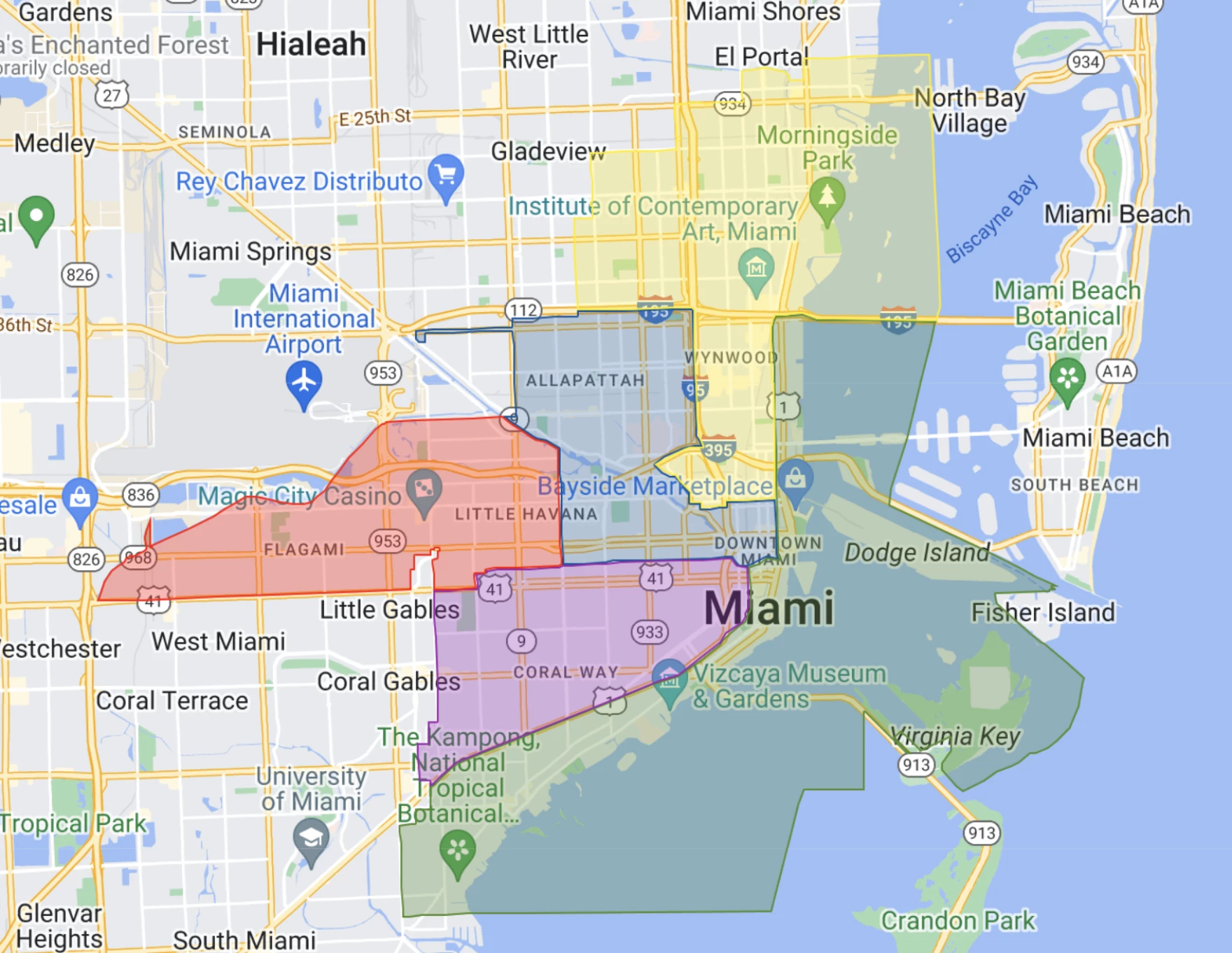A clock is ticking on which version of voting map will go into effect for the City of Miami — one that was ordered by a federal judge, or one politicians drew that allegedly packs Black and Hispanic voters into certain districts.
U.S. District Judge K. Michael Moore on Sunday issued his ruling siding with plaintiffs, a collection of Miami residents and local advocacy groups that includes Engage Miami, and adopted one of their proposed maps ahead of local elections set for November.
But late Monday, the 11th U.S. Circuit Court of Appeals issued an “administrative” stay of Moore’s order after attorneys for the City appealed. The court ordered that the coalition of advocacy groups file a response to the City’s appeal no later than 9 a.m. Wednesday.
County elections officials earlier said that today – Aug. 1 – was the deadline needed to make sure election workers could properly implement whichever map was going to be used – resulting in uncertainty. An elections department spokesman was not could not be reached Tuesday morning by the Independent.
The map ordered by Moore makes Miami’s five commission districts more compact than they had been under the city’s design. Notably, the map puts all of the Coconut Grove neighborhood back together into District 2, a major point of contention. The neighborhood had been split into three separate districts last year, leading to backlash from the civically active residents.
The plaintiffs sued the city late last year, accusing the commission of violating the U.S. Constitution by drawing voting districts based predominantly on race. In commission meetings during the redistricting process, commissioners discussed keeping Districts 1, 3 and 4 Hispanic, while maintaining District 5 mostly Black, and keeping District 2 as the “Anglo” seat.
In May, Moore ruled that the plaintiffs were likely to succeed on their racial gerrymandering claim, and the city would have to draft a new map for the upcoming elections.
In his order, Moore said the city gave no valid arguments as to why the plaintiffs’ proposed maps did not meet the legal requirements under the U.S. Constitution.
“Defendant does not even attempt to rebut Plaintiffs’ claims about the merits and legalities of P4 [(Plaintiffs’ Map 4)]. In the Court’s view, rather than contesting P4 as a constitutional remedy, Defendant has proffered a variety of grievances about potential political outcomes that would result from its implementation,” Moore wrote. “Such grievances are misplaced when the Court is evaluating a remedy to resolve the unconstitutional aspects of [the City’s district map].”
Yanelis Valdes, director of organizing and advocacy at Engage Miami and one of the several named plaintiffs, said the judge’s decision is a step in the right direction for fairness in Miami’s elections.
“It’s a new day for Miami voters who will finally have a fair say in our elections. The court’s decision to reject the city’s gerrymander and order the plaintiffs’ map means Miami’s communities will get fair representation in government this November,” Valdes said in a statement.
The other plaintiffs were Grove Rights and Community Equity (GRACE), the South Dade and Miami-Dade NAACP Branches, and five city residents. They were represented by the ACLU of Florida and Dechert LLP.
The city had appealed Moore’s previous ruling that they had to draw a new map, but dropped their appeal earlier this month after Miami commissioners voted to adopt a new one, which plaintiffs said was largely similar to the one they accused of being racially gerrymandered.
In an emailed response to media, Miami City Attorney Victoria Méndez said the city nevertheless plans to appeal again.
“We appreciate the Court’s valuable insight into the City’s Redistricting process, but the Court waited to [sic] long in making this determination pursuant to caselaw. The Court did not truly give the City Commission the presumption of good faith with regard to their legislative functions. We plan to appeal,” Méndez wrote.
Moore ordered the city to deliver the plaintiffs’ map to the Miami-Dade Elections Department on Monday and implement it for the November 2023 municipal election.




